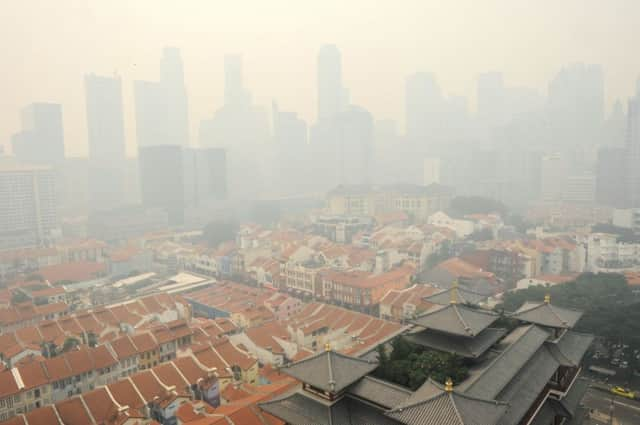Leaders: We all must tackle global warming


Yesterday saw the second of three reports by the Intergovernmental Panel on Climate Change. The first said that there was little doubt that mankind was causing climate change and this one gives predictions of the effects it will have. It described the impacts of global warming as “severe, pervasive and irreversible”.
Whilst there was one scientific participant who described it as “alarmist”, and there will be a few more outside the process who will agree with him, a few scientists do not make for a comprehensive rebuttal.
Advertisement
Hide AdAdvertisement
Hide AdThe report also makes the point that the volume of scientific evidence supporting the case for man-made climate change has in effect doubled since 2007.
It doesn’t really matter what is being observed, whether it is dying coral reefs in equatorial or temperate latitudes, retreating glaciers in high mountain ranges or in ice caps, thawing permafrost areas in the sub-Arctic regions, shrinking water availability in hot climes – all show the effects of climate change.
The effect of these changes on the things that mankind depends on for everyday living – crops, water for farming and for drinking, fish stocks – looks to be serious. They may take decades to play out, but at a time of rising world population, the effects become magnified, causing food and water shortages which inevitably have the greatest impact on those least able to cope with them – the poor.
No country will be untouched by these problems, the report says. Some in higher latitudes may experience local benefits such as warmer summers and a longer growing season. But given that these higher latitude countries are mostly well-developed, they have global food chains. The supply of foodstuffs such as rice may become more difficult.
Scotland could probably cope with that. But such a shortage would be catastrophic for poor peoples in hotter climates, causing poverty, disease, and migration.
The third and final UK report aims to set out what can be done to mitigate these threats, but no-one should allow the wait for that, or the misplaced conception that this is a problem only big government can tackle, to be an excuse for inaction.
Cynicism should be set aside. This is a scenario in which the actions of people, while vanishingly small in individual terms, collectively can matter far more than does a government decree.
Everyone has to do what they can do, whether it is taking the bus rather than the car or switching off unnecessary lights. Put simply, all of us have to live more sustainably.
Crimefighting is the central issue
Advertisement
Hide AdAdvertisement
Hide AdPolice Scotland is now one year old. Predictions that it would have awful results look to have been wide of the mark. Overall crime rates are down, which is surely the test which counts, for had they gone up then the painful merger of eight forces plus the Scottish Crime and Drug Enforcement Agency into one force would surely have been blamed.
Within the overall reduction there have been some troubling increases, such as in crimes of violence and house-breaking. But crediting reorganisation as having caused the rise in these types of crimes is too much of a stretch. Indeed, having one single police organisation may facilitate the transfer from one area to another of the kind of violence reduction which, in Inverclyde, has reduced knife crime by 60 per cent in six years.
Clearly there is still a long way to go before there is complete public and civic acceptance of the new structure which itself has to make some painful adjustments. There are concerns that required budgetary cuts entail the dismissal of so many civilian staff that police officers may be removed from the beat to a desk.
There are worries too about local accountability and the closure of police station front counters making the police too remote from the communities they serve.
These are matters which merit further discussion and remedies if need be, for public confidence in, and collaboration with, police officers is vital, not just in dealing with crime but in other matters such as searches for missing children. But the enormity and complexity of the reorganisation must be allowed for, and crime fighting, not political brickbatting, is the important yardstick.